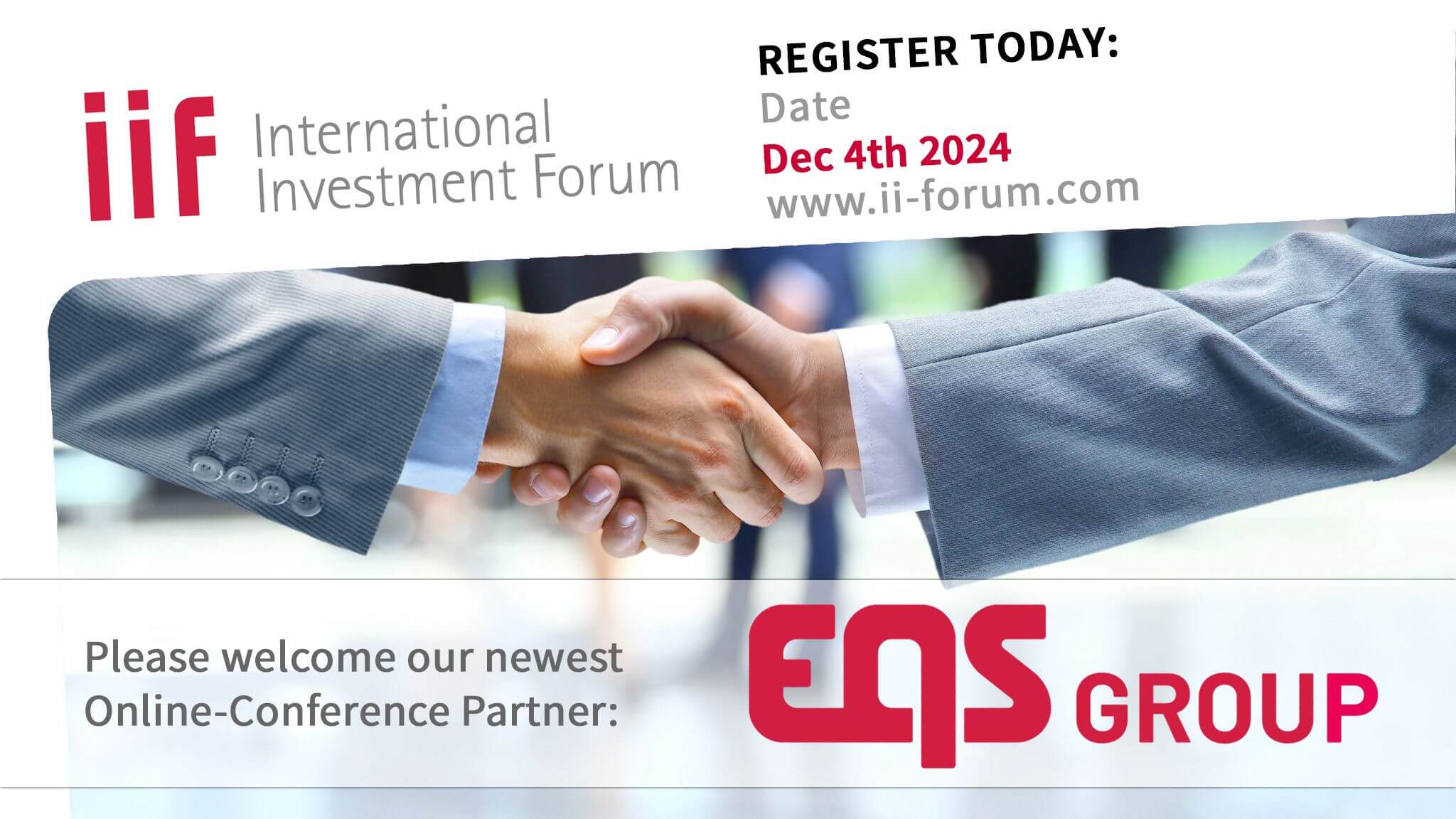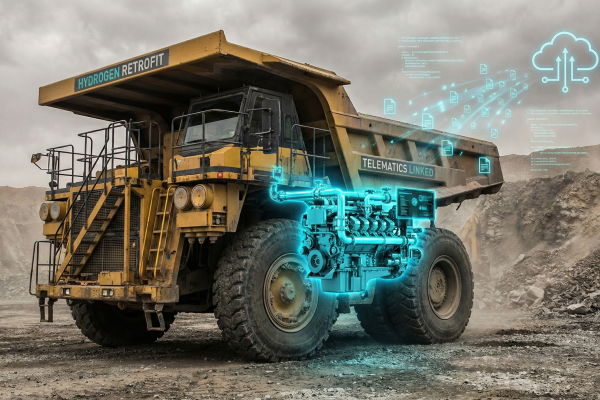November 27th, 2024 | 07:35 CET
Nel ASA, First Hydrogen, Volkswagen – Hydrogen could save the European automotive industry
The European automotive industry is at a crossroads: Amid the transition to zero-emission drivetrains and growing competitive pressure from China, manufacturers are looking for technological alternatives beyond battery-based solutions. Hydrogen propulsion could play a key role here. Particularly in applications such as heavy-duty commercial vehicles or long-distance mobility, hydrogen offers advantages that push BEVs (battery electric vehicles) to their limits. In addition, the technology enables a diversification of the European drive system landscape and reduces dependence on scarce raw materials such as lithium or cobalt.
time to read: 5 minutes
|
Author:
Armin Schulz
ISIN:
VOLKSWAGEN AG VZO O.N. | DE0007664039 , NEL ASA NK-_20 | NO0010081235 , First Hydrogen Corp. | CA32057N1042
Table of contents:

"[...] We can convert buses and trucks to be completely climate neutral. In doing so, we take a modular and incremental approach. That means we can work with all current vehicle types and respond to new technology and innovation [...]" Dirk Graszt, CEO, Clean Logistics SE
Author
Armin Schulz
Born in Mönchengladbach, he studied business administration in the Netherlands. In the course of his studies he came into contact with the stock exchange for the first time. He has more than 25 years of experience in stock market business.
Tag cloud
Shares cloud
Nel ASA – Building hydrogen infrastructure
A suitable infrastructure is needed to establish a new drive system. Nel ASA, a leading company in the hydrogen sector, spun off its hydrogen refueling division as an independent company called Cavendish Hydrogen in 2024. The aim is to set clear priorities: Nel ASA will subsequently focus on electrolysers, while Cavendish will act as a specialist for hydrogen refueling stations. The new company brings with it more than 20 years of experience and over 140 filling stations built worldwide. Despite ambitious plans to set standards for the refueling of heavy-duty vehicles, the focus is on economic challenges.
The quarterly figures remain mixed despite the spin-off of the high-deficit refueling division. Revenues increased, but the Company continues to report high losses. Revenues rose 32% to NOK 475 million compared to the same quarter last year, driven by increasing demand for electrolysers. At the same time, the EBITDA margin remained deeply negative at -30%, weighed down by investments and rising production costs. CEO Håkon Volldal emphasized the importance of efficiency improvements and cost reductions to improve profitability. On a positive note, the Company reported a record order backlog, underscoring Nel's strong market position in the global hydrogen sector. Nevertheless, the stock market reacted cautiously.
Even the announcement that the Norwegian electrolysis specialist had received up to EUR 135 million from the EU innovation fund failed to boost the share price. The funds are to be used to drive the industrialization of the next generation of pressurised alkaline technology, which is currently being tested in prototypes. The plan is to expand production at the Herøya plant in Norway, with an initial capacity of 1-2 GW, expandable up to 4 GW. The aim is to reduce the cost of green hydrogen and bring sustainable innovations to market more quickly. The share is currently trading at NOK 3.107.
First Hydrogen - Green hydrogen as the key to the energy transition
First Hydrogen, a Canadian company headquartered in Vancouver, is positioning itself as a pioneer in the growing market for green hydrogen mobility. After development work based on a best-of approach, the Company has successfully tested hydrogen-powered commercial vehicles (FCEV) with an impressive range of 630 km. The vehicles, which produce no emissions other than water vapor, address the global trend towards decarbonization in the logistics industry. With the planned construction of a production site in Quebec and a 35-megawatt plant for green hydrogen, First Hydrogen is underpinning its ambition to supply North America with 25,000 zero-emission vehicles annually.
In addition to Canada, First Hydrogen is increasingly turning its attention to Europe, where ambitious climate targets, such as achieving net-zero emissions by 2050, offer enormous market opportunities. The hydrogen-powered vehicles have already been tested in practice by various fleet operators in the UK and have been well received, which creates further confidence in the technology. In the future, the focus will be even more on Germany. The Company has already opened an office there and plans to work closely with experienced European partners. Germany plays a key role here: with billions being invested in a nationwide hydrogen network and a dynamic automotive industry, the largest EU market offers ideal conditions for First Hydrogen.
In addition, companies like First Hydrogen benefit from the EU's funding programs, which specifically promote investment in green technology. First Hydrogen's economic prospects are promising. It is estimated that each commercial vehicle could be marketed for EUR 50,000, which, with 10,000 vehicles sold per year, would mean a turnover of EUR 500 million – with a current market capitalization of just CAD 25.3 million. For investors willing to take risks and enter the hydrogen sector, the Company offers an attractive growth opportunity, although the market will continue to be influenced by global developments and regulatory frameworks. The stock is currently available for CAD 0.35.

Volkswagen – Facing major challenges
Volkswagen (VW) is already active in the field of hydrogen technology, a segment that has traditionally been overshadowed by battery-electric drives. In collaboration with Kraftwerk Tubes GmbH, the carmaker has filed a patent for a new type of fuel cell. This uses a cost-effective and stable ceramic membrane instead of a conventional plastic membrane, eliminating the need for expensive materials such as platinum. With a range of up to 2,000 km, the technology could set new standards and be particularly attractive for longer distances. Although VW continues to focus on electric vehicles, this hydrogen solution is seen as a strategic addition – especially for commercial vehicles and industrial applications.
As part of comprehensive restructuring plans, VW has defined ambitious goals for the coming years. Brand CEO Thomas Schäfer wants to lead the Company back to success by 2027 through a three-stage strategy. In the first step, "catching up", efficiency is to be increased and existing losses offset. This will be followed by a phase of "attack", which will include the introduction of eight new models by 2027. These will also include affordable electric vehicles to reach new target groups. In the long term, VW aims to secure its leading position in the European market and to place at least three models in the top 10 best-selling vehicles. The measures are an attempt to respond to stagnating markets and high production costs in Germany.
Despite clear plans, VW continues to face difficulties. After failed wage negotiations, the Company is facing a possible industrial dispute as the IG Metall union is exerting pressure with warning strikes. In addition, VW is suffering from the high production costs at German plants, which are twice as high as at sites in Eastern Europe. The looming plant closures and cost-cutting plans are meeting with massive resistance from the workforce. Added to this is the uncertainty caused by the insolvency of Northvolt, a key partner in battery cell production, in which VW has invested large sums. Whether they can catch up with the software-advanced Chinese remains to be seen. Is hydrogen the alternative? Volkswagen's shares remain under pressure and are currently trading at EUR 80.20.
Hydrogen could serve as a key technology for the mobility transition in Europe. Nel ASA is driving the industrialization of green hydrogen with its hydrogen infrastructure and innovative electrolysers, but faces financial challenges. First Hydrogen impresses with zero-emission commercial vehicles and a global market focus, while expansions in Europe and North America offer enormous market opportunities. Volkswagen is breaking new ground with new fuel cell technologies and sees hydrogen as a strategic complement to battery-electric drives. Together, these players are demonstrating the transformative potential of hydrogen, but economic obstacles and competitive pressure remain long-term challenges. Europe's industry could benefit from consistent implementation.
Conflict of interest
Pursuant to §85 of the German Securities Trading Act (WpHG), we point out that Apaton Finance GmbH as well as partners, authors or employees of Apaton Finance GmbH (hereinafter referred to as "Relevant Persons") may hold shares or other financial instruments of the aforementioned companies in the future or may bet on rising or falling prices and thus a conflict of interest may arise in the future. The Relevant Persons reserve the right to buy or sell shares or other financial instruments of the Company at any time (hereinafter each a "Transaction"). Transactions may, under certain circumstances, influence the respective price of the shares or other financial instruments of the Company.
In addition, Apaton Finance GmbH is active in the context of the preparation and publication of the reporting in paid contractual relationships.
For this reason, there is a concrete conflict of interest.
The above information on existing conflicts of interest applies to all types and forms of publication used by Apaton Finance GmbH for publications on companies.
Risk notice
Apaton Finance GmbH offers editors, agencies and companies the opportunity to publish commentaries, interviews, summaries, news and the like on news.financial. These contents are exclusively for the information of the readers and do not represent any call to action or recommendations, neither explicitly nor implicitly they are to be understood as an assurance of possible price developments. The contents do not replace individual expert investment advice and do not constitute an offer to sell the discussed share(s) or other financial instruments, nor an invitation to buy or sell such.
The content is expressly not a financial analysis, but a journalistic or advertising text. Readers or users who make investment decisions or carry out transactions on the basis of the information provided here do so entirely at their own risk. No contractual relationship is established between Apaton Finance GmbH and its readers or the users of its offers, as our information only refers to the company and not to the investment decision of the reader or user.
The acquisition of financial instruments involves high risks, which can lead to the total loss of the invested capital. The information published by Apaton Finance GmbH and its authors is based on careful research. Nevertheless, no liability is assumed for financial losses or a content-related guarantee for the topicality, correctness, appropriateness and completeness of the content provided here. Please also note our Terms of use.




